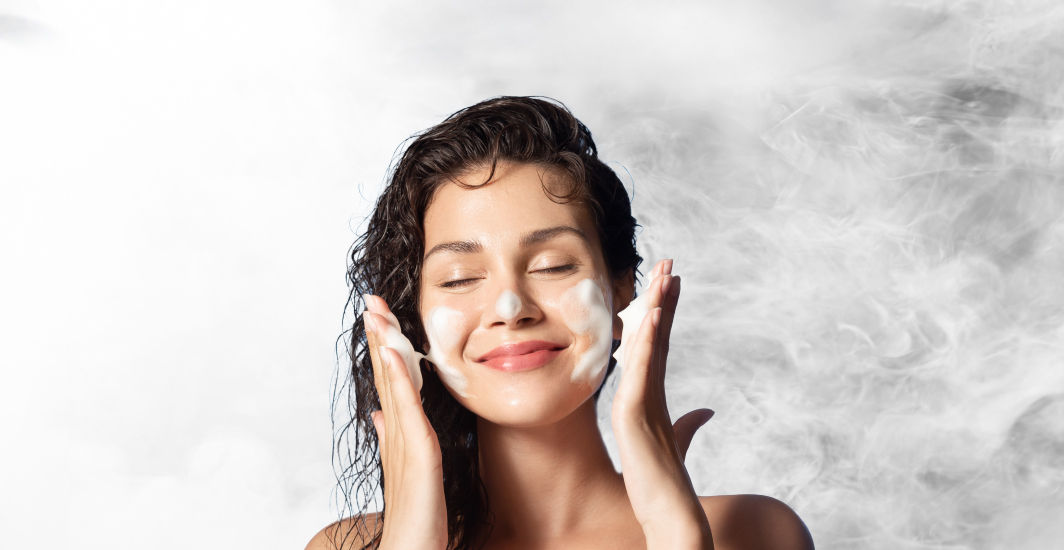General Health
Top 10 Sources Of Iron-Rich Foods
By Apollo Pharmacy, Published on- 27 September 2023, Updated on -26 August 2024
Share this article
0
0 like

Iron deficiency is a common nutritional deficiency, with millions of people worldwide affected by it. Understanding the causes and symptoms of iron deficiency is crucial for early detection and prevention. Iron is an essential mineral that plays a crucial role in our overall health. It is responsible for carrying oxygen to all parts of the body and helps in the production of energy. Furthermore, iron is also important for individuals who want to build muscles or lose weight by promoting satiety. Including iron rich foods in your meals can help curb hunger cravings and prevent overeating, making it easier to maintain a healthy weight.
What is Iron Deficiency?
Iron deficiency is a common nutritional deficiency characterized by insufficient levels of iron in the body to meet its needs. Iron is an essential mineral that plays a crucial role in various bodily functions, particularly in the production of haemoglobin, a protein in red blood cells that carries oxygen from the lungs to the rest of the body.
When there is an inadequate supply of iron, the body cannot produce enough healthy red blood cells, leading to a condition known as iron deficiency anaemia.
1. Causes of Iron Deficiency
The most common causes include inadequate dietary intake of iron, poor absorption of iron from food, increased iron requirements during certain stages of life (such as during pregnancy) and blood loss due to menstruation or injury.
2. Common Symptoms of Iron Deficiency
Common signs or symptoms include:
- Fatigue
- Weakness
- Pale skin
- Shortness of breath
- Dizziness
- Brittle nails
If left untreated, iron deficiency can lead to more serious health complications such as anaemia and compromised immune function.
3. Factors Affecting Iron Absorption
Factors affecting iron absorption include the following:
- Substances found in certain beverages like tea and coffee can inhibit iron absorption.
- Foods high in calcium or phytates, such as whole grains and legumes, can reduce iron absorption.
Recommended Daily Intake of Iron
To ensure that you meet your daily iron requirements, it is important to understand the recommended daily intake for different age groups and genders. The recommended daily intake is as follows:
- Men: Men aged 19 years and older require 8 mg.
- Women: Women aged 19 to 50 years require 18 mg. During pregnancy, this requirement increases to 27 mg.
- Children: Infants aged 7 to 12 months require 11 mg; 1 to 3 years need 7 mg and 4 to 8 years require 7 mg.
Top 10 Iron-Rich Foods
Iron is an essential mineral that the body needs to function properly, and incorporating iron rich foods into your diet can help prevent iron deficiency anaemia. Here are the top 10 iron rich foods:
1. Spinach
Spinach is a well-known superfood that is not only packed with essential vitamins and minerals but is also a rich source of iron. Spanish is also known to boost your energy levels.
The following are some of the creative ways to incorporate spinach into your diet:
- Add fresh spinach leaves to salads, sandwiches or wraps for a nutrient boost.
- Blend spinach into smoothies or juices for a quick and easy way to consume it.
- Substitute lettuce with spinach in recipes like burgers or tacos.
2. Lentils
Lentils are low in fat and cholesterol-free, making them an ideal choice for maintaining a healthy weight and heart. They promote cardiovascular health, aid in digestion, regulate blood sugar levels and support weight management.
Delicious lentil recipes to try:
- Make a soup with lentils, vegetables and aromatic spices.
- Make a refreshing salad with cooked lentils, mixed greens, cherry tomatoes and cucumbers
- Make a spicy curry with lentils, tomatoes, onions and a blend of spices
3. Chickpeas
Chickpeas are high in fibre, protein and various vitamins and minerals. They can aid in weight management, promote digestive health and reduce the risk of chronic diseases such as heart disease and diabetes.
Some delicious chickpea-based dishes that you can easily incorporate into your meals:
- Make a creamy chickpea spread from mashed chickpeas, tahini, garlic, lemon juice and olive oil.
- Make a chickpea curry with spices like turmeric, cumin and coriander.
- Toss cooked chickpeas with olive oil and your favourite spices, then roast them in the oven until crispy.
4. Pumpkin Seeds
Pumpkin seeds are not only a tasty snack, but they are also packed with essential nutrients, including iron. Moreover, pumpkin seeds are high in protein and packed with antioxidants which improves your overall health.
Here are some easy ways to incorporate pumpkin seeds into your diet:
- Sprinkle them on salads or soups for added crunch and nutrition.
- Blend them into smoothies for an extra boost of protein.
- Roast them with your favourite spices for a delicious and nutritious snack.
5. Quinoa
Quinoa is a complete protein, meaning it contains all nine essential amino acids. Quinoa is high in fibre, which aids digestion and promotes satiety. Being rich in antioxidants, quinoa is also a good source of magnesium, manganese, and phosphorus.
If you are looking for delicious ways to enjoy quinoa, here are some recipes to consider:
- Toss cooked quinoa with your favourite vegetables for a salad.
- Sauté quinoa with mixed vegetables and your choice of protein for a stir-fry.
- Cook quinoa in milk (dairy or plant-based) until creamy and top it with fruits and nuts for porridge.
6. Tofu
Tofu is made from soybeans and is a staple in many vegetarian and vegan diets. This plant-based source is not only rich in iron but also provides other essential nutrients like calcium, magnesium and protein.
Here are some tasty tofu dishes to add to your meal plan:
- Sauté tofu with your favourite vegetables like bell peppers for a stir-fry
- Replace eggs with crumbled tofu for a scramble
- Simmer tofu in a flavourful curry sauce made with tomatoes, onions, and spices for curry
7. Dark Chocolate
Dark chocolate is not only a delectable treat but also an iron rich food. Here are some health benefits:
- Rich in antioxidants
- Heart-healthy properties
- Mood booster
Let us explore some indulgent dark chocolate recipes to satisfy your cravings:
- Melt dark chocolate and spread it onto a baking sheet. Add your favourite toppings like nuts, dried fruits or sea salt.
- Blend frozen bananas, a spoonful of cocoa powder, almond milk and a handful of spinach. Top it with dark chocolate shavings.
- Blend ripe avocados, cocoa powder, honey or maple syrup and vanilla extract until smooth and creamy.
8. Red Meat
Red meat contains a type of iron called heme iron, which is easily absorbed by the body. However, it is important to choose lean cuts of red meat and consume it in moderation. Lean cuts of red meat have less fat and fewer calories, making them a healthier choice. Consuming excessive amounts of red meat has been associated with an increased risk of certain health conditions such as heart disease and certain types of cancer.
Delicious and nutritious recipes include the below:
- Try preparing a steak salad with mixed greens, cherry tomatoes and grilled sirloin steak.
- Make a flavourful beef stir-fry with vegetables like bell peppers, broccoli and snow peas.
- Cook up a hearty beef stew loaded with vegetables and herbs for a comforting meal.
9. Sesame Seeds
Sesame seeds may be tiny in size, but they pack a powerful punch when it comes to iron content. They are an excellent source of calcium, magnesium and fibre, making them a great choice for promoting healthy bones and digestion.
Here are a few ideas to get you started:
- Sprinkle toasted sesame seeds over salads or stir-fries for an added crunch and nutty flavour.
- Blend sesame seeds into homemade dressings or sauces for a rich and creamy texture.
- Use sesame seed butter (tahini) as a spread on toast or as a dip for vegetables.
10. Oysters
Oysters are packed with various nutrients besides iron, including zinc, copper, selenium, vitamin B12 and omega-3 fatty acids. Consuming oysters can boost your immune system, support brain health, improve heart health, and enhance fertility.
Here are some tasty recipes to try:
- Top oyster with a mixture of spinach, butter, breadcrumbs and cheese before being baked until golden.
- Make a sandwich featuring crispy fried oysters served on a baguette with lettuce, tomato and mayo.
- Make a comforting soup with fresh oysters, potatoes, onions, celery and cream.
Tips for Maximising Iron Absorption
To maximise iron absorption and ensure that your body is getting the most out of the iron-rich foods you consume, there are a few key tips to keep in mind.
- Consuming foods rich in vitamin C, such as citrus fruits, strawberries, and bell peppers, alongside iron rich foods can enhance iron absorption.
- Cooking foods in cast iron cookware can increase the iron content of the cooked food. Acidic foods like tomatoes can help leach even more iron from the cookware.
- If your healthcare provider prescribes iron supplements, take them as directed. Iron supplements are often recommended for individuals with diagnosed iron deficiency anaemia or those at risk of deficiency who cannot meet their needs through diet alone.
Summary
Incorporating iron rich foods into a balanced diet is crucial for overall health and well-being, for which variety, pairing with vitamin C and cooking methods are necessary. Remember, maintaining adequate iron levels is essential for building muscle, promoting satiety and ensuring overall good health. So make sure to include these iron rich foods as part of your balanced diet and enjoy the benefits they bring! If you are unable to get the apt amount of iron from your diet, you may take supplements post consultation with a doctor.
General Health
Frequently asked questions
The recommended daily intake of iron is 18 mg for adult women and 8 mg for adult men.
Yes, but the iron from plant-based sources is not as easily absorbed by the body as the iron from animal sources.
Yes, certain lifestyle factors can affect iron absorption. For example, drinking tea or coffee with meals can inhibit iron absorption.
Symptoms of iron deficiency can include fatigue, weakness, pale skin, shortness of breath, dizziness and difficulty concentrating.
To prevent iron deficiency, ensure that you consume a balanced diet rich in iron-rich foods. Alternatively, you can consume iron supplements as directed by your healthcare professional.
Leave Comment
Recommended for you

General Health
Top 10 Anti-Pollution Skincare Products
Struggling with pollution-related skin issues? Check out our curated list of the top charcoal-based skincare products, including face washes and scrubs, suitable for all skin types. These essentials help to detoxify, cleanse, and protect your skin from environmental stress, perfect for maintaining a fresh, healthy complexion every day.

General Health
How To Protect Skin From Air Pollution?
Air pollution significantly impacts the skin, causing oxidative stress and depleting antioxidants, which can lead to premature ageing, acne, and inflammation. Pollutants contribute to skin damage by triggering inflammation and disrupting the skin’s natural defences. This article explores the harmful effects of air pollution on the skin and offers effective strategies to combat them.

General Health
Top 10 Anti-Pollution Face Washes
In a polluted world, your skin needs extra care. Daily exposure to impurities can clog pores and cause breakouts. An anti-pollution face wash deeply cleanses, removing toxins and oil. This blog lists the top 10 face wash options to protect and refresh your skin.
Subscribe
Sign up for our free Health Library Daily Newsletter
Get doctor-approved health tips, news, and more.
